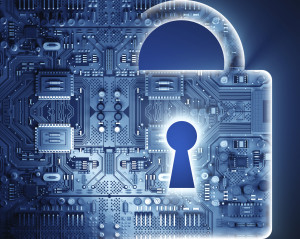3 Ways to Be Safer With Your Information

As a real estate agent, or as a broker, your business will steadily go paperless if it isn’t already. Clipboards are replaced by tablets and quick phone calls substitute office time. All this means a change in how you keep your data secure. Locking your filing cabinet just isn’t going to do it anymore, because you might not even have a filing cabinet. Here are a few ways to keep your office and your customer’s sensitive data safe.
1 – Use Cloud Storage
Small to medium businesses don’t often have the most up to date and high level security antivirus, malware programs and server hardware used by cloud services due to rising costs – both of hardware and software. Onsite servers are at risk of disasters such as fire or floods, mistakes from employees and theft. If your data is in the cloud, you have a ready-made backup and disaster recovery plan that can enable you to get back to work sooner after something goes wrong – for a price you can afford.
Cloud services will always have the highest level of security as their reputation depends on keeping your sensitive data safe – nobody wants to use a service that has been compromised.
2 – Security for Your Devices
Around 36% of U.S consumers have had their cell phone lost or stolen – and if you’ve been accessing your company data using your phone or other device, how secure can it be? In the wrong hands your customers’ data can be used in a variety of fraudulent ways, and you don’t want to be responsible for that.
To make sure this doesn’t happen, you can set up a remote wipe system that lets you destroy data on your phone, no matter where you or the phone happens to be. Apple’s iOS supports remote wipe commands through Find My Phone or ExchangeActiveSync.
However, to do this the device must be connected to the internet, so you should consider enabling a password wipe as well – meaning that if your PIN or passphrase is entered incorrectly a certain amount of times, the data will automatically be wiped – so make sure you remember your own password! This means that whilst you may never get you phone or device back, your data will always be safe. Encryption software also recommended on any device you store data on as a basic precaution.
3 – Passwords
This may seem like a very basic step, but many people don’t put enough thought into the choices they make for their passwords. Firstly, you and your employees need to establish strong password guidelines. No one likes having to make up passwords with one capital letter, two numbers and no spaces when they log onto sites, but there’s a reason for it – the more random a password is, the less chance there is of the account being hacked.
Microsoft recommends that you avoid using any personal data to make your password – such as birth dates, family names, pets – or common words spelled backwards. It should be between 8-12 characters long and be changed every 90 days. It is also important that every employee has their own username and password, having a group one increases the risk of being hacked.
Information is valuable, and it is critical that your business does everything to ensure its safety. Many tactics are employed to secure data, and following some simple rules will go a long way to protect your clients and company.
